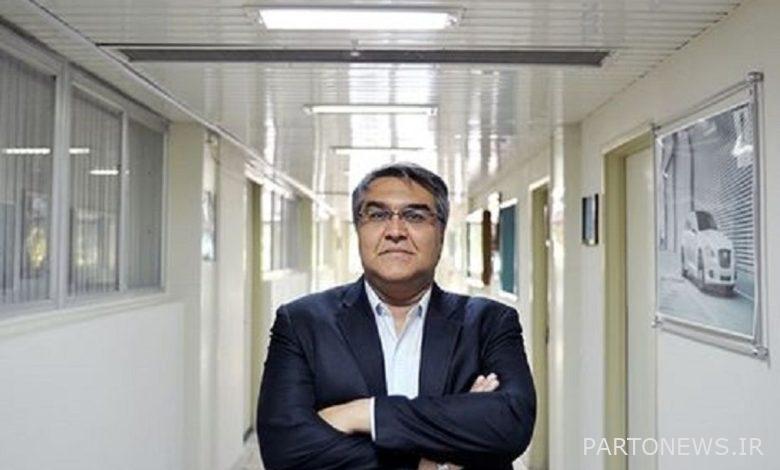Contradictory automotive promises; Quality or quantity? / We have to wait for the lottery for imported cars

Online Economy – Parham Karimi; At the beginning of 1401, Ebrahim Raisi gave orders during his visit to car manufacturers, which later became known as the 8 Orders of the President. 8 orders that after that, with the promises of the Minister of Silence to fulfill these orders, the country’s automobile industry faced a large volume of promises, the implementation of which was accompanied by many buts and ifs.
In a conversation with Amir Hassan, an expert Kakaei, a member of the academic staff of the Iran University of Science and Technology, Ekhtazonline discussed Fatemi Amin’s promises and the 8 orders of the president. At the beginning, Amirhassan Kakaei pointed out that making promises and having enthusiasm is necessary for the movement of the industry, but without having a clear plan and strategy, this movement will definitely fail and said: All these 8 clauses are excellent one by one, but as A collection has fundamental contradictions. For example, raising the quality was raised as one of the basic clauses, and raising it by sacrificing the circulation is a simple way, and if our goal is to raise the quality, it can be raised with the will and without the need for a specific plan and strategy. But along with this order, we have seen promises to increase production by 150%, which cannot be expected overnight from car manufacturers to simultaneously increase quality and circulation.
As an example, this auto industry expert pointed to the increase in car warranty from 40 to 60,000 kilometers and said: without increasing the quality and only by ordering to increase the warranty, you will only increase the costs of car manufacturers, while you could solve Eliminate the obstacles that have reduced the quality of domestic cars, the need for major repairs in low kilometers.
Therefore, the promise of a 150% increase in production is inconsistent with the promise of increasing quality. This promise was given while the minister, at the beginning of his ministry tenure in 1400, planned to produce 1,350,000 cars by the end of that year, but in the best case, only 900,000 cars were produced in 1400. According to Amirhasan Kakaei, the production of 1 million 600 thousand cars was promised for the year 1401, which was then reduced to 1 million 200 thousand cars with the promise of a 150% increase.
Regarding the announcement of such an increase, he said: If you intend to increase production by 1.5 times, you must first increase your steel sheet production by the same amount, while you have not solved the problem of supplying electricity and gas to industries, including steel. In addition to these internal supply chain problems, how do car manufacturers want to supply their imported parts, including electronic chips, under sanctions? While there is a shortage in the supply of these parts all over the world?
The frightening point of such an order, along with other actions of the ministry, is the silence of the automakers’ strategies for such an increase in production, which, according to Kakai, can be done through the assembly with a low domestication percentage of imported economy cars, which greatly harms the country’s automobile industry.
Another order is the quarterly privatization of automobile manufacturers. The main question is whether our other big privatizations have increased the productivity and competitiveness of companies? According to Amir Hassan Kakaei, the answer to this question is no, and according to him, if our previous experiences in this field were unsuccessful, why does the minister not answer about his plans to correct this unsuccessful process.
Another question is about how to privatize these companies? Will these companies be privatized by handing over 6% of government shares? In this case, what will happen to Todli shares? It is true that the government can exert influence through the uncertainties of these stocks.
Another order is the liberalization of car imports. The first and basic ambiguity of this order is the provision of foreign exchange resources. If the country has enough currency to import cars, why isn’t the currency provided to car manufacturers and parts makers to increase production? In this regard, Amir Hassan Kakaei said: The automobile industry of our country has been sanctioned, but the import of automobiles is still free. These sanctions are because we want to defend our development, so why don’t you help the country’s automobile industry by allocating foreign currency to the parts maker and car maker, along with the good relations you say we have with China?
According to him, the bold and negative point of this order is the import of cars under $10,000 by car manufacturers. In this situation, import liberalization not only does not help to create competition, but also aggravates monopoly. Amir Hassan Kakaei further said: announcing the reduction of the import tariff for such cars is a relief from the treasury’s pocket, and the reduction of tariffs will reduce the government’s income. If you have considered such a tariff reduction for importing cars, you should also reduce all domestic production taxes
He also predicted that with the same decree in the future, they will also conduct a lottery for economic imported cars.
The contradictory point of these talks with the other orders of the president is that if the car manufacturers of the country are to be privatized, then why is the government commenting on the future plans of the car manufacturers. Why should anyone want to buy a collection with 60 thousand billion tomans of accumulated losses unless he was promised huge rents such as imports with low tariffs.

